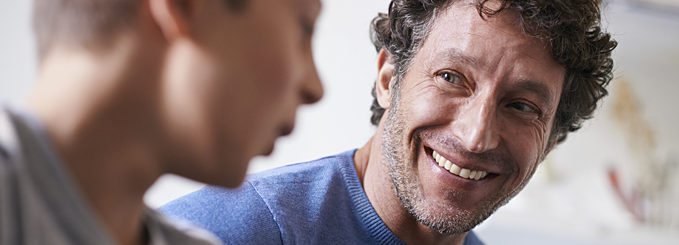
Relationships and Sexual Health
What do we mean by Relationship and Sexual Health Education?
Gone are the days of "sex education" and "The Talk" about the "the facts of life".
In 2009 Education Scotland introduced a new Curriculum for Excellence for Health and Wellbeing, which covers 'Relationships, Sexual Health and Parenthood’ (RSHP).
This is a curriculum for lifelong learning that starts at nursery school and continues through to the senior phase of secondary school. The programme covers a wide range of topics and skills, for example:
Early years - self-awareness, family, friendships, male and female body parts
Upper primary - Puberty, friendships, boundaries and personal space, relationships, how babies are made, how babies are born, looking after a baby
Secondary - growing up, friendships, relationships, personal space, consent, keeping safe, boyfriends and girlfriends, love and intimacy, sex, contraception, condom use, pregnancy, responsibility of parenthood
You can find out more about the curriculum for Excellence for Health and Wellbeing.
Is the RSHP curriculum suitable for children and young people with autism?
The majority of young people with autism will require the same information at the same time as their peers, but they may require that information in a different format, or they may need additional support for learning.
Parents and carers can talk to the school about the curriculum and can ask to view any of the resources being used. You can discuss any relevant information or specific needs the child or young person you care for has, and if necessary how the resources can be adapted accordingly. You can also speak to the school about support from other professionals, such as Speech and Language Therapists.
The National Autistic Society has lots of information on RSHP for parents.
What else can parents do?
Parents/carers can ask for some RSHP education work to be brought home. This gives you an opportunity to talk to the child/young person about the subject and check their learning and understanding.
The home is an ideal place to learn more about body parts, social skills, growing up, puberty, boundaries and many other topics. Parents/carers can also access books, leaflets and other resources from the NHS Health Improvement Service.
Education Scotland have a Parentzone website for more tips on supporting your child with relationships, sexual health and parenthood.
Additional areas of learning?
Social skills can be particularly difficult for individuals who have an ASD and can affect their ability to form and maintain friendships and relationships. To help with this, children, young people and adults with autism should be encouraged to play an active role in their family, school and community and be supported to access social activities, groups and clubs in their local area. Some individuals with an ASD find it difficult to recognise and distinguish between appropriate boundaries and personal space. This can lead to inappropriate behaviour, sometimes of a sexual nature.
How we can support people with sexualised behaviour?
Sexualised behaviour most commonly includes masturbating in public, taking clothes off in public, touching others and becoming fixated on other people who they want as their boyfriend/ girlfriend. Sexualised behaviour can also include serious sexual offences. It is important that any sexualised behaviour is addressed at an early age so that it does not escalate or continue in to adulthood.
Schools in Forth Valley have a Behaviour Policy, which includes guidelines for Managing Sexualised Behaviour. Parents/carers should be part of this process and be involved in identifying concerns and planning appropriate interventions.
Adults with autism require the same knowledge and skills as young people. However, it is less likely that they will have received Relationships and Sexual Health education in school and it then becomes the responsibility of parents and carers to seek out support for their adult son or daughter. Social groups within the area provide an opportunity for adults to meet friends and potential partners. Some of these groups are autism specific whilst others are for people with a range of learning disabilities.
Forth Valley has a Dating Service (Match4Me) for people with learning disabilities, including those with autism. In addition to chaperoned dates, they can learn dating skills, appropriate conversation and behaviour, personal safety, respect and responsibility, consent and sexual health. Other professionals, such as your NHS Learning Disability Team, can also offer support with relationships, sexual health and consent.
Your NHS Health Improvement Resource Service has resources for adults with autism and their carers/support workers, and Scottish Autism can also provide a range of support and advice. Your GP or local Sexual Health Clinic can offer advice on methods of contraception, treatment for sexually transmitted infections, erectile dysfunction, sexual problems, issues around sexual orientation and transgender services.
And finally...
All children, young people and adults have a right to education and information. Adults have a right to consensual sexual relationships, to marry and have a family, and this includes people with autism. However, individuals with additional support needs will often need parents, carers, teachers, support workers, friends or advocates to help them gain knowledge and develop skills in many areas of their life, including Relationships and Sexual Health. Lots of support is available. Please take advantage of it.





